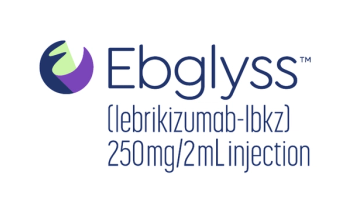
- MHE March 2023
- Volume 33
- Issue 03
Challengers of the Status Quo In Pharmacy Benefit Management — Less Wasteful Formularies
This portion of the month's cover story series spotlights PBM EmsanaRx, a branch of Purchaser Business Group on Health (PBGH), and its President and CEO, Elizabeth Mitchell, who explains that EmsanaRx differs from other PBMs because they use what PBGH calls a waste-free formulary. This months cover story shines a light on the companies, trends and ideas that are shaking things up and reshaping the contour of how healthcare is paid for and delivered.
Despite all the regulation, entrenched interests and bureaucratic entanglements, healthcare remains one of the more dynamic sectors of the American economy.
The activity spring partly from altruism: a desire to heal and help. There's also an abundance of resources — and not just a little profit seeking — in a sector that accounts for almost one-fifth of the U.S. economy.
Over the next few days, we are featuring some of the challengers to the status quo in U.S. healthcare: companies, people, trends and ideas that are shaking things up and reshaping the contour of how healthcare is paid for and delivered.
It's just a small sample - a tiny one - but these vignettes should provide insights into the road ahead in U.S. healthcare.
Since the 1990s, the nation’s largest employers have been asking pharmacy benefit managers (PBMs) for lower drug costs and more transparency into how pharmaceutical costs are set. Despite being among the largest purchasers of health insurance — covering an estimated 55% of all Americans — employers have had only modest success in getting answers.
In October, the Purchaser Business Group on Health (PBGH), a San Francisco–based coalition of some of the nation’s largest employers, started its own PBM, according to Elizabeth Mitchell, president and CEO of PBGH. “Our members have spent decades trying to get the industry to be more responsive, but when that doesn’t happen, they’re ready to create their own solutions, which is the idea behind starting EmsanaRx,” Mitchell says.
EmsanaRx differs from other PBMs by using what PBGH calls a waste-free formulary, replacing high-priced medications with cheaper ones that provide the same health benefits. This means putting generic medications on a formulary instead of brand-name ones. For example, the monthly cost of the brand-name Nexium (esomeprazole) is $270 at a pharmacy, whereas the generic version costs $30.
“PBGH did some early work to develop a waste-free formulary, which led to our decision to create a PBM,” Mitchell says. “When our members took that idea back to their PBMs, those PBMs were unwilling to make those changes.”
Another difference between EmsanaRx and other PBMs is its corporate structure, according to Greg Baker, CEO and co-founder of EmsanaRx along with Steve Michurski, MBA, the chief operating officer of EmsanaRx. The large PBMs — CVS Caremark, Express Scripts and Optum Rx — are part of for-profit, publicly traded companies, whereas PBGH and EmsanaRx are public benefit corporations that must generate a social and public good, operate in a responsible and sustainable manner and undergo auditing to assess their progress toward delivering a public benefit.
Articles in this issue
almost 3 years ago
No Prescription Needed. But Will Insurers Cover OTC Hearing Aids?almost 3 years ago
Nontraditional Players Are Getting Into Healthcare Gamealmost 3 years ago
Digital Health Took Off. How To Keep it Flyingalmost 3 years ago
The List of PBM Formulary Exclusions Got Longer in 2023almost 3 years ago
RSV Vaccine Development Is On the Comeback TrailNewsletter
Get the latest industry news, event updates, and more from Managed healthcare Executive.

























